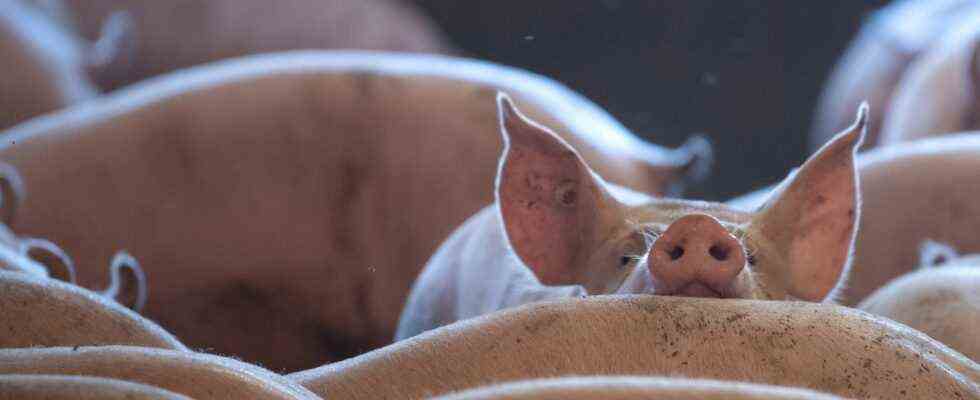Status: 16.09.2021 4:29 p.m.
Reserve antibiotics are actually supposed to save seriously ill people. But they can still be used in animal fattening, decided the EU Parliament. Doctors are horrified and warn of more resistant germs.
The majority of the European Parliament sees no need for action: Reserve antibiotics should also be able to be used widely in animal fattening in the future. “It is a bad day, really a very bad day for human medicine,” says Martin Häusling, visibly disappointed by the vote. He had submitted a motion for stricter antibiotic rules in animal fattening for the Greens parliamentary group.
“Great Challenge for Global Health”
Support for this came in advance from the World Medical Association. Human medicine has long been warning of increasing levels of resistance in people. The German Robert Koch Institute also describes this resistance as one of the “greatest challenges for global health”.
Reserve antibiotics are used when normal antibiotics no longer work – often in life-threatening situations. That is why the World Medical Association wants to keep them primarily for people.
Healthy animals are also given antibiotics
The Greens politicians see the danger that the widespread use of antibiotics in animal fattening will lead to further resistance. “If it stays that way now, then the massive use in chicken, turkey and pig farming will continue”, fears Häusling.
According to him, more than 60 percent of all antibiotics are currently used for farm animals, not for humans. The high number comes about because healthy animals are also given the antibiotics. They are given to entire stalls as a precaution, mixed in with feed or in drinking water, the aim is to prevent diseases in pigs and poultry in this way.
Chickens are often contaminated with multi-resistant germs
According to information from environmental organizations, many chicken samples are contaminated with resistant germs as a result of the massive use of antibiotics. In contrast, much stricter rules apply to milk. If a cow has to be treated with an antibiotic because of an inflammation of the udder, for example, the milk must not be delivered for several weeks and it will not be marketed. Pig and poultry farmers point out that they cannot treat sick animals in isolation in the large mass stalls.
Only use reserve antibiotics in veterinary medicine in exceptional cases – the Greens proposal triggered a wave of protests from veterinarians and pharmaceutical manufacturers. Their argument: Then pets could no longer be treated with antibiotics, which may be life-saving. The Greens asserted that this was not their intention, that such individual animal treatment of horses, dogs and budgies is still possible.
CDU blocked
The request for a restriction was rejected with the votes of the largest group in the European Parliament, the Christian Democrats. The CDU politician Norbert Lins, chairman of the agricultural committee, gives the reasons: “Reserve antibiotics are important medicines that can save lives both for humans and for our animals”. There are already restrictions, not all reserve antibiotics are allowed to be used in animal fattening.
The specialist magazine Top Agrar reports that veterinarians and animal keepers can take a deep breath and quote the Federal Association of Practicing Veterinarians. The decision of the European Parliament was a result “for the welfare of animals and animal welfare”, according to the veterinary organization.
Despite medical protests, reserve antibiotics are still allowed in animal fattening
Helga Schmidt, ARD Brussels, September 16, 2021 4:09 p.m.

